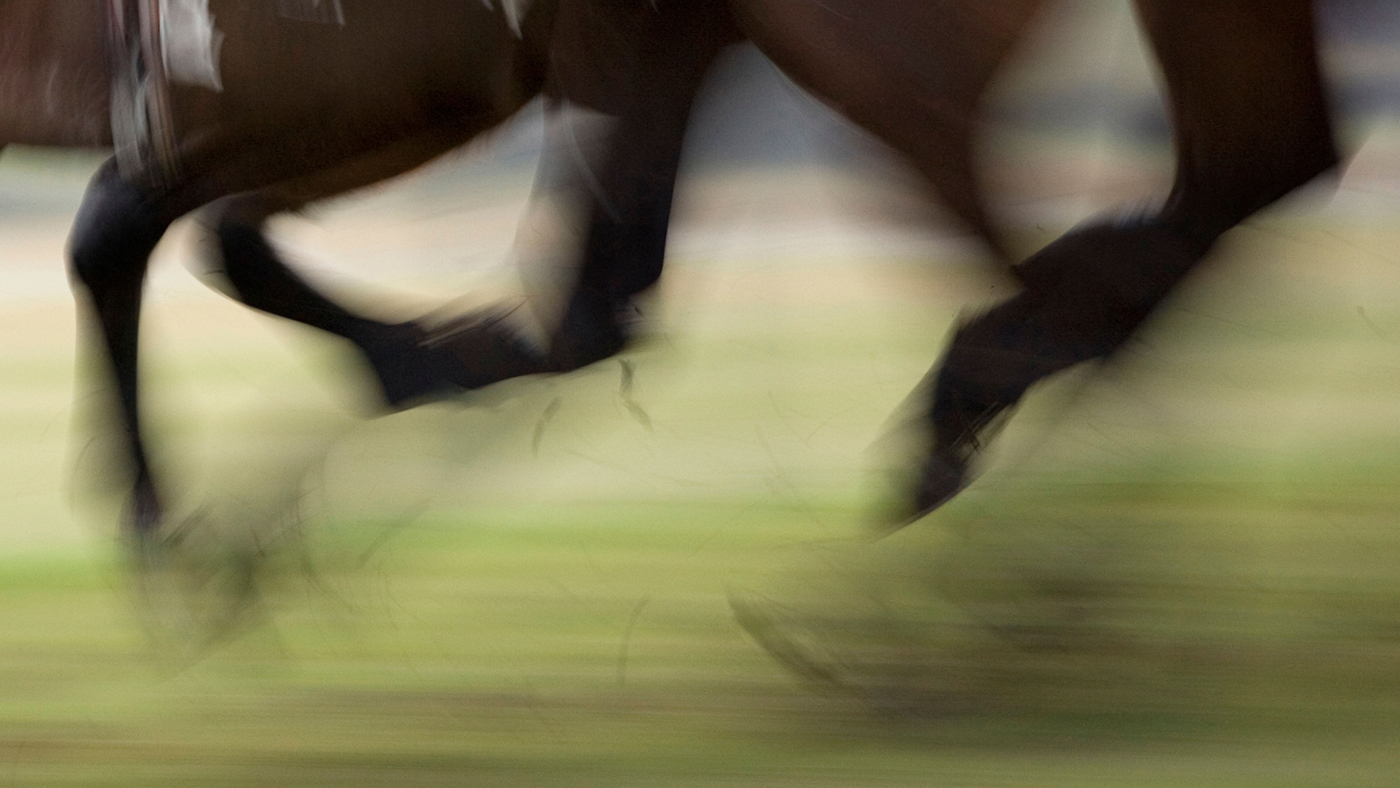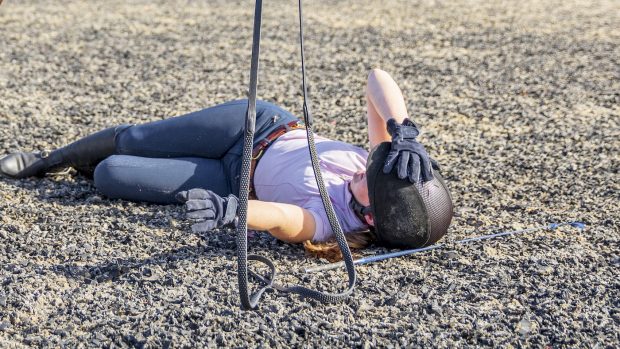How the Injured Jockeys Fund (IJF) tailors its concussion rehabilitation specifically to getting riders back in the saddle, and what possible new technology is in the pipeline, were under the spotlight at the charity’s conference.
IJF head of clinical services Anna-Louise Mackinnon and racing industry concussion practitioner Rosy Hyman spoke about active recovery techniques in the IJF toolbox.
“Hand-eye coordination is important in all sport, but it is really important for racing,” explained Ms Hyman.
She added that when race-riding, jockeys are constantly taking in information – from eyes, ears and the small balance points from their position on a horse – and need to be able to filter what is important.
Dr Mackinnon explained how active techniques that focus on rehabilitating the balance, vision and movement system (vestibular-oculomotor rehabilitation), which can be affected by concussion, are used by the IJF.
Trained specialists use exercises that challenge riders to focus on specific points – for example, beads on a string, along with balance and hand-eye coordination exercises. The idea is that it helps prepare jockeys for what they go through when returning to race-riding, such as blocking out distractions to see a stride.
“We need jockeys to be able to focus on one point even when there’s a really busy crowd,” said Dr Mackinnon.
The industry is also looking into technology such as saliva tests and a system called NeuroFlex, where the subject’s eyes and head position are measured while they perform simple tasks using a virtual reality headset.
Its benefits would include level of detail and objectivity in both assessments and measuring a jockey’s progress.
British Horseracing Authority chief medical adviser Jerry Hill gave an overview of some of the latest developments in concussion.
These include the Government’s action plan (news, 13 January), microRNA biomarkers – which could potentially be used in a similar way to a lateral-flow test, and the possibility of an in-ear device that can measure brainwaves.
“Premature return to sport increases your chances of an unrelated injury,” said Dr Hill, also reminding the conference of the severity of sustaining a secondary blow when already concussed.
“You are more likely to fall off. And if you return early, you are probably not going to be very good at your sport.”
‘Not just a bang on the head’
Riders Minds has launched a “head first checker” in response to a study by Charles Owen and University of Sussex MSc student Charlotte Ricca.
The study, which involved more than 1,000 riders, found 58% of concussed participants reported a significant increase in depression and anxiety scores after their fall.
The findings were released in conjunction with Riders Minds, which launched its “head first” campaign and checker to encourage equestrians to “rethink” concussion as “not just a bang on the head”. The aim is to educate riders about signs of change from their “normal”.
“Riders Minds has found 25% of riders have suffered from depression, and [this new research] indicates that riders who have experienced five or more concussions are twice as likely to suffer from a mental health condition as a result,” Riders Minds director Victoria Wright said, adding that the research also suggests this does not always happen immediately; it can be six months to a year after the incident.
The checker can be found at ridersminds.org/Get-support/head-first-checker
You might also be interested in:
Horse & Hound magazine, out every Thursday, is packed with all the latest news and reports, as well as interviews, specials, nostalgia, vet and training advice. Find how you can enjoy the magazine delivered to your door every week, plus options to upgrade your subscription to access our online service that brings you breaking news and reports as well as other benefits.




